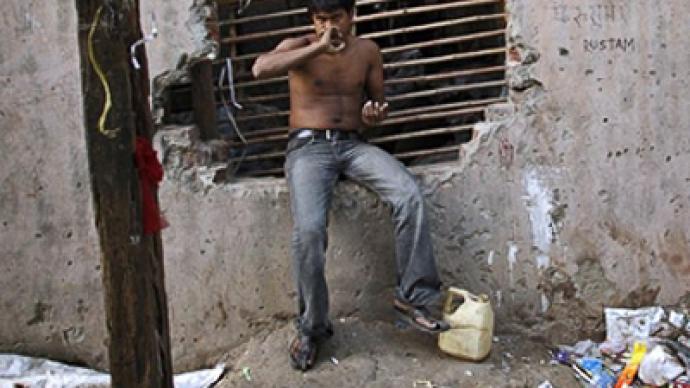Indians’ health trashed with America’s e-waste

The American consumer appetite fuels thousands of jobs in the developing world, but the payback is a legacy of pollution. When those goods are past their best, firms are getting around regulations and using countries like India as a dumping ground.
Americans love to have the latest laptop or the newest netbook. Studies show that these days the useful lifespan of a computer is only two years and everyday Americans dump their junk in the hope of keeping up with the joneses tallying up to a total of three million tons of electronic waste every year. But it won’t foul America’s own nest; the e-trash will head to countries like India. In Seelampur, a predominantly Muslim, mostly poverty stricken area in the east of India’s capital Delhi, thousands of Indians turn waste into what they see as a tiny treasure. Thirty-two-year-old Mohammad Azam has been tearing apart trash for ten years. “My work is collecting these electronic scraps and dismantling them. That’s how I make my living,” says Azam. “In a day we get goods worth 400-500 rupees ($9-11).”Split between friends, Azam can sell the raw materials and make about a dollar a day. Unlike regular trash that can simply be tossed away in many developed countries, including parts of the US, electronic waste must be sent to a special collection agency that is supposed to responsibly recycle the parts.However, while it can cost these agencies anywhere from $15-30 to properly recycle a computer, they can actually make the same amount if they ship it to a developing country like India, where eager buyers think they can turn a profit on the goods.Delhi is fast becoming one of the biggest e-waste dumping sites in the world. Those with few options for survival hope to cash in on the junk from developed countries.And even though it is illegal under the Basel Convention to ship hazardous material to India, companies define the junk as secondhand goods or mixed metals to customs officials to get away with it. “Many countries feel like they need secondhand computers because they feel it is one way of putting computerization in the country, but what they get in exchange is e-junk,” says Ravi Agarwal, the director of Toxics Link, a group dedicated to protecting migrant workers from the dangers of electronic waste. “In Delhi, the workers are working with very strong acid because they need to put the bolts inside the acid, so you’ll see them, they’ll have injuries, they’ll have burns or they’ll have very strong respiratory problems, because they’re breathing all the strong acids.”It is a reality that most of these workers know all too well, but for them it is a dirty job that at least for now gives them a means to survive.“I know what I do is not good for my health, but I have no other source of income. No other job, so I have to do something or the other,” says Mohammad Azam, voicing the horror that those with no choices are sometimes forced to accept.












